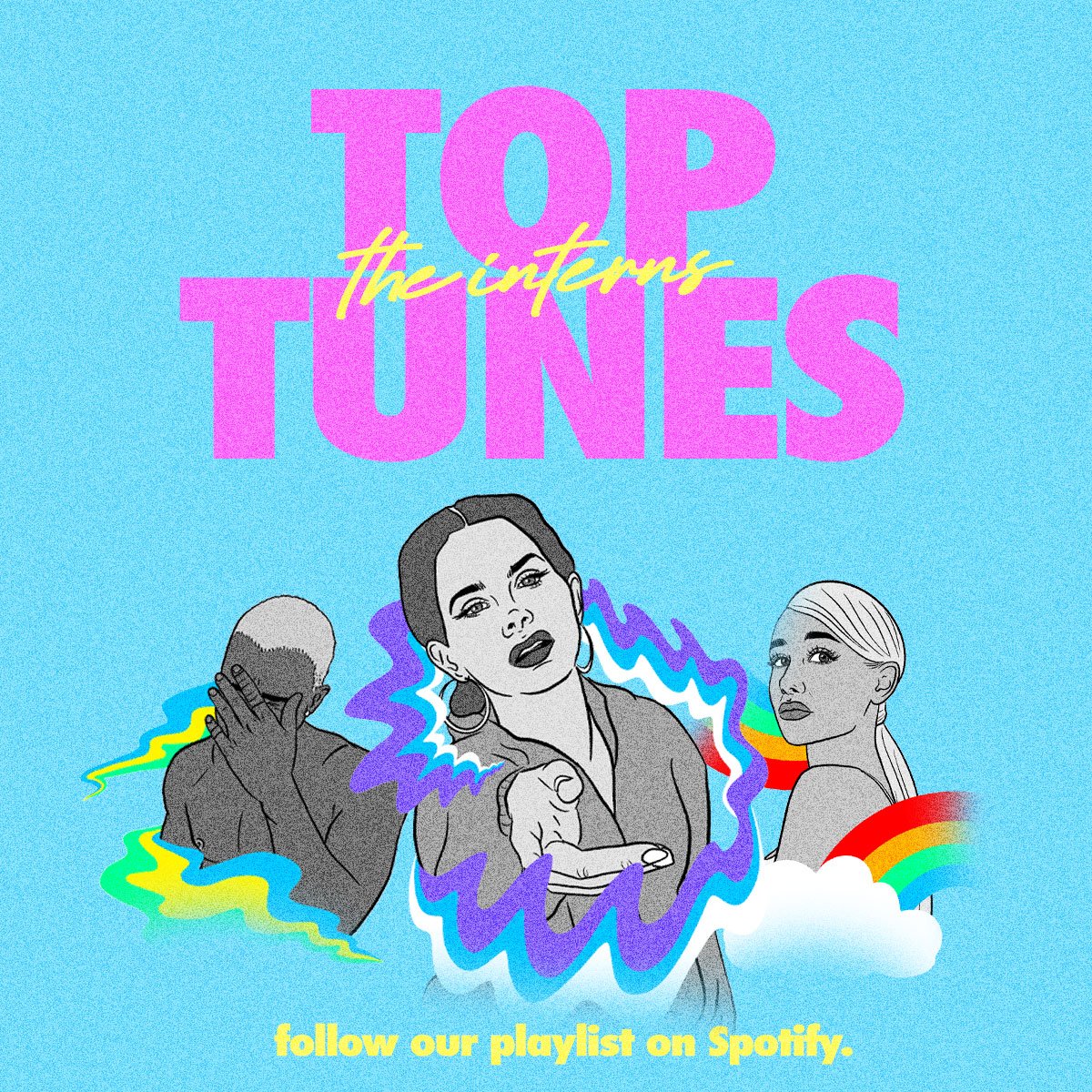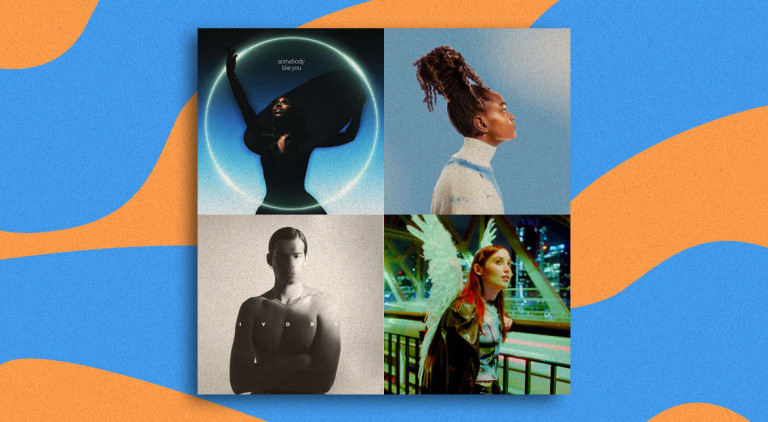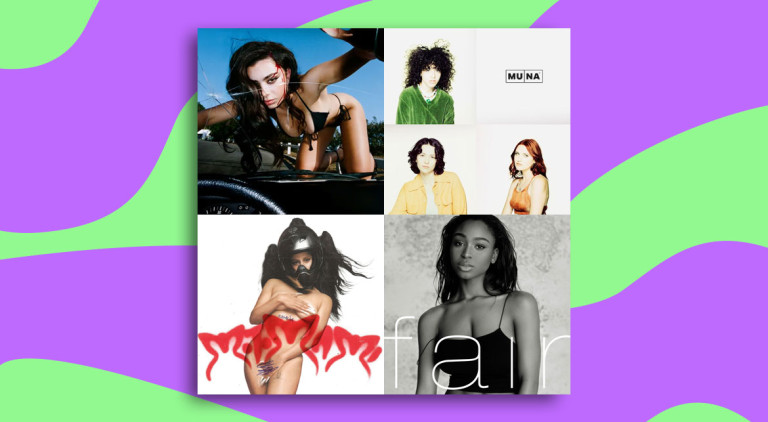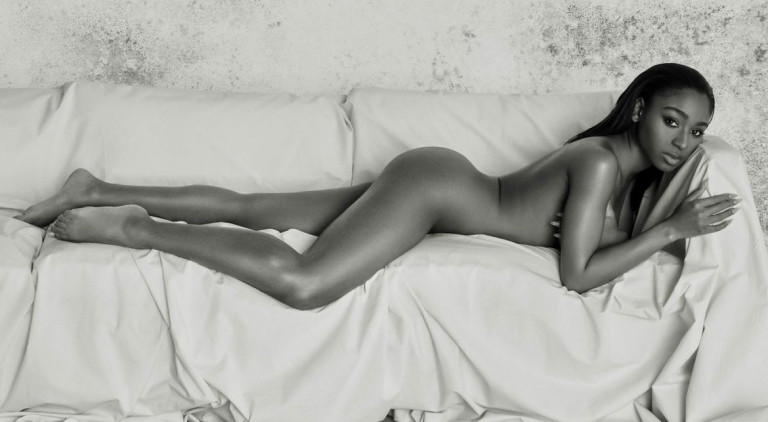
This month, we're celebrating all things '00s, looking back on iconic artists, albums, outfits, trends and more. Over the course of the month, you'll be hit with features, lists, playlists and throwbacks all leading up to our Millennium Bug party in Sydney at the start of October. Grab your tix here.
I remember the first time I heard Rihanna's Umbrella on the radio. It was early in the morning and it had just premiered on the radio here in Australia. I played it in excess of 20 times that day because it was so immediately profound. The way the high hat and snare ushered in Jay Z's verse, the way Rihanna flirted through the verses and then took command in the chorus, the way she instantly made it iconic with the "ella-ella-ella" trademark. You knew that this was a pop track that was going to go the distance. Even the producer Tricky Stewart said, “When she recorded the ‘ellas,’ you knew your life was about to change.”
He was right.
Before this, Rihanna was a good popstar. She had an easy-going, island charm to her. She was the girl from Barbados who made in big in America. There was something loveable about her tropical-tinged tunes and something relatable about the way she positioned her music - her second album was called A Girl Like Me. When the video for Umbrella dropped it was clear that Rihanna was no longer loveable. Sporting a black bob, she introduced us to the first reinvention in a career of reinventions and commanded us to listen rather than be her friend. She went head-to-head with the biggest rapper in the world at the time, Jay Z, and made him look small. Here was a popstar who was more badass than the boys but still popstar enough to fulfil her goal of being "the black Madonna."
Post-ANTI, the world is familiar with RiRi's badgal antics. She's puffed joints on Snapchat, swigged from flasks at the Grammys and wielded guns in video clips. Forget the big-hitters like Taylor Swift and Katy Perry, Rihanna has the strongest image of any musician on the planet but none of that would have been possible without Good Girl Gone Bad. It was the album that put her in command. In command of the charts and her image.
We have to remember that before ANTI, Rihanna's albums were not the main event. She was a singles artist. One that has clocked worldwide number ones with songs off every album since A Girl Like Me. She has a better track record for lead-singles of any artist on the planet (We Found Love, Umbrella, Diamonds) and yet her albums were still patchy affairs.
Good Girl Gone Bad was not cohesive. It jumped from hip-hop to dance within a track and featured production from StarGate, Timbaland and Tricky Stewart. Sure, you can critique it for that but this was an album that clocked five top 10 singles in the US, including two number one singles. To this day, it's the album with the most hits on it and the one that most music-consumers in 2006 can recount from back-to-front.
Nearly every track off Good Girl Gone Bad could've been a single. Push Up On Me is one of Rihanna's most flirty and endearing tracks, Breakin' Dishes is a ball-breaker as good as Bitch Better Have My Money and Good Girl Gone Bad could've cashed in on the Beyoncé Irreplaceable sound that was dominating the charts. The only reason they were beaten is because there were even better singles on there. The singles and visuals that came from this album were nothing short of spectacular.
Rihanna and her team at the time understood that album sales were declining and in the wake of the iTunes revolution, it was all about singles. While most had albums of two or three singles, Rihanna had an album full of them. And by 2007, it set her up to be the biggest artist in the world.
She somehow made car workshop, rock-hip-hop work with Shut Up And Drive and sampled Michael Jackson into the stomping dancefloor starter Don't Stop The Music. She was committing the cardinal sins of music and yet becoming more and more iconic with each drop. Don't Stop The Music almost matched the success of Umbrella which is phenomenal for the fourth single from a record and a mark that her impact was rising, fast.
The language on Good Girl Gone Bad was part of the switch from girl next door to Badgal RiRi. On SOS she was a damsel in distress, on If It's Lovin' That You Want it was up to the guy to decide whether he wanted her. Then she became demanding. "Don't stop", "push up", "shut up" and "say it" were all commands not questions. After this album, everyone wanted to write for Rihanna because no matter what genre she took on, she had an individuality and a power that made it impossible to imagine anyone else singing it. That's because Good Girl Gone Bad showcased her as an actress of song, able to take on any role and be convincing. She achieved that with the main album and then introduced us to vulnerability on the re-release.
"That was quite a show, very entertaining," she sang on Take A Bow, staring the camera right down the lens. While it's not Rihanna's best single, it's the one that successfully combined vulnerability and power, establishing her as a human being and a superhuman. The transformation was complete. And then, just for fun, Disturbia came out and notched her another number one with a video more demonic than anything she rolled out during her Rated R era.
Who knows what would've happened to Rihanna had Good Girl Gone Bad not worked. It's the bed on which she built her career on and also awarded her the trust of her label and the public. It also allowed her the freedom to take the time to respond to an abusive relationship with a dark and hard fourth album that wasn't as hit-heavy as its predecessor.
"I felt like I was being lost in the race," Rihanna told PAPER magazine in 2007, the year that she started winning the race.
"I wanted to get a little dirty, dye my hair black and cut it short."
That was the visual change but Rihanna committed to it wholeheartedly and took charge. At the same time that Britney Spears was being consumed by the pop machine, Rihanna got on top of it. She learnt how to play it while maintaining her personality. 10 years later, she's barely slipped up. She's had a top 10 record every year in the US since her career started in one of the most turbulent industries in the world.
We're not talking about Good Girl Gone Bad for nostalgic purposes because the record and Rihanna are still relevant. Surely, that makes her a legend.
We'll be playing RiRi's 'Umbrella' at our Millennium Big party, celebrating the '00s. You coming?




